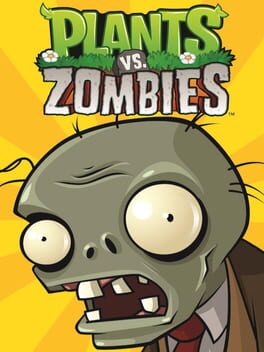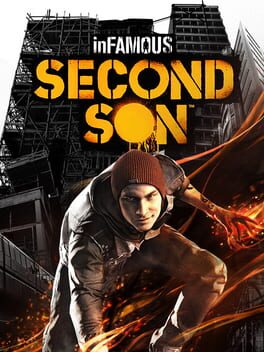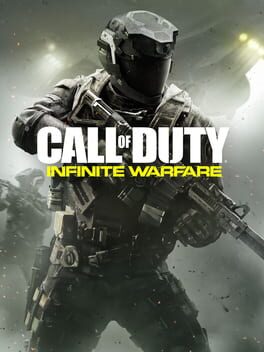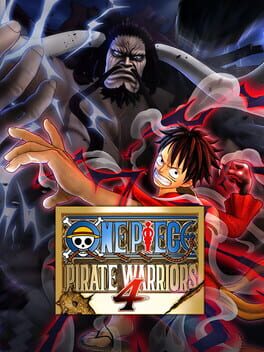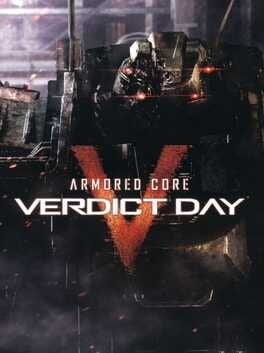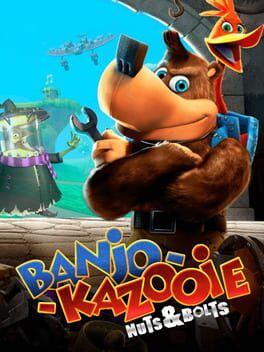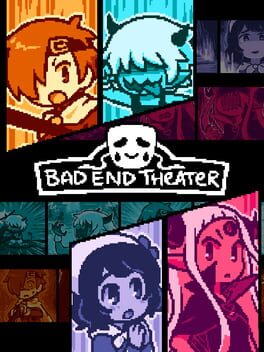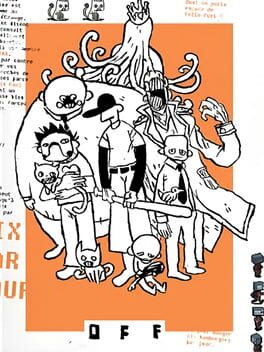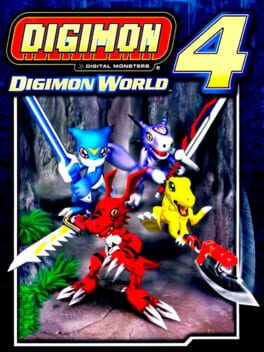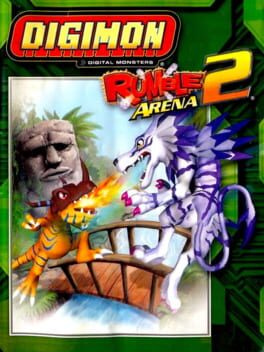Snoof3
2009
Kinda crazy how universally enjoyed this game was to get so many sequels, definitely one of the most memorable little puzzle games with quite a lot of meat to it. Dozens of ways to approach it, tons of little side endeavors and challenges, and a special care to nuanced enemy variety, it really has it all for such a modest game. If there's anymodern game to show your kids in the future, it's probably this one.
2014
The first two infamous games seemed like safe sony filler, but ended up being somewhat risk-taking and inspired if a bit flawed. This one wanted to appear as if it was taking even more risks-- new main character, drastically new setting and threats, and a ton of new powers-- However this instalment is easily the least inspired and felt like it was made solely by suits going off the framework of what made other sony franchises successful. Nobody's expecting something as good as Zeke ever again or maybe even all the cool side missions, but this game doesn't even come close.
Also worth noting, the multiple powers are cool to advertise the game on but what you end up with is none of them being elaborated on as much as Cole's. Everything that does work about this game comes off as tacked on, with even the new enemy factions and map design seeming as generic as possible. There aren't really any redeeming parts of this game aside from the graphical effects for the neon abilities, to the point you're left with a game that just tediously wears away your interest.
Also worth noting, the multiple powers are cool to advertise the game on but what you end up with is none of them being elaborated on as much as Cole's. Everything that does work about this game comes off as tacked on, with even the new enemy factions and map design seeming as generic as possible. There aren't really any redeeming parts of this game aside from the graphical effects for the neon abilities, to the point you're left with a game that just tediously wears away your interest.
for some reason the multiplayer clicked with me here more than anywhere else in the series. The combinations of polarizing vertical map design, ridiculous creative weapon ideas, and pivotal character abilities all gel together to allow for immensely fun plays.
At the time it came out, the futuristic vibe was considered played out, but I've come to look back on Infinite's artstyle the most fondly in the series.
The weapons deserve a special mention here, as being able to split a gun into two separate weapons for melee or as smaller pistols really left an impression on me, and many of the the variants of weapons are fascinating. Had it been handled with a less corporate mindset, I'm sure the soul of it would be much more accessible.
At the time it came out, the futuristic vibe was considered played out, but I've come to look back on Infinite's artstyle the most fondly in the series.
The weapons deserve a special mention here, as being able to split a gun into two separate weapons for melee or as smaller pistols really left an impression on me, and many of the the variants of weapons are fascinating. Had it been handled with a less corporate mindset, I'm sure the soul of it would be much more accessible.
currently not super far into the main campaign, same old same old but the maps look pretty great for the early game standard in both design and graphics and from the air dashes, multiple special moves to manage at once, and the greatest variety in characters and enemies so far it can easily open up to be the best musou ive played.
Raiden, do not turn off that console, this game is fucking nuts.
A bit of a preamble, but if you want peak mechanical stealth shooter, Snake Eater is a much better choice and is ridiculously innovative even by the series standard, having much more straightforward and immediate story and map design to grasp onto.
Sons of Liberty, on the other hand, is a game that puffs up its chest and does some rather ridiculous and incredible things that just weren't done in videogames prior, or done as well since. Taking nothing but risks, this title can casually throw around huge ideas mechanically and narratively with countless little ways to change up playstyles, find countless secrets, and make you think outside the game. Introducing bizarre devices like the directional microphone the game allows you apply yourself in as many ways as you'd want.
Narratively, though, is where the game is packing heat. This game's story questions everything-- starting with smaller, subtle notions like series conventions, action genre tropes, the perception of games themselves,
and can jump as lofty as discussing the reasons why we're alive, the importance of the human legacy and freedom, and even the polarization of political dialogue. Some people might not like how convoluted and ridiculous Metal Gear lore is, but at the end of the day it acknowledges it's just supposed to be a fun game while acting as a vehicle for characters and themes that will hit you like a truck.
Strongly recommend this game just so more people can talk about its absurd design and gameplay, because dear god we need it, and it's still just a fantastic game to play and one I'll be revisiting for any number of reasons.
A bit of a preamble, but if you want peak mechanical stealth shooter, Snake Eater is a much better choice and is ridiculously innovative even by the series standard, having much more straightforward and immediate story and map design to grasp onto.
Sons of Liberty, on the other hand, is a game that puffs up its chest and does some rather ridiculous and incredible things that just weren't done in videogames prior, or done as well since. Taking nothing but risks, this title can casually throw around huge ideas mechanically and narratively with countless little ways to change up playstyles, find countless secrets, and make you think outside the game. Introducing bizarre devices like the directional microphone the game allows you apply yourself in as many ways as you'd want.
Narratively, though, is where the game is packing heat. This game's story questions everything-- starting with smaller, subtle notions like series conventions, action genre tropes, the perception of games themselves,
and can jump as lofty as discussing the reasons why we're alive, the importance of the human legacy and freedom, and even the polarization of political dialogue. Some people might not like how convoluted and ridiculous Metal Gear lore is, but at the end of the day it acknowledges it's just supposed to be a fun game while acting as a vehicle for characters and themes that will hit you like a truck.
Strongly recommend this game just so more people can talk about its absurd design and gameplay, because dear god we need it, and it's still just a fantastic game to play and one I'll be revisiting for any number of reasons.
2010
Was feeling pretty eh about this game early on because the customization and HUD were super cool but the menus and starting missions were such a hassle, then i got to the bosses and started losing my shit. Something I'd play much more if the experience was just a bit more streamlined without all the faction shenanigans and better load times, probably the best mech sim off the top of my head.
A game nobody wanted, but ended up being pretty fun to mess around in. A lot of vehicle builders later on missed good ideas N+B had with side missions which, while annoying, allowed for creative problem solving and nuanced decisions in vehicle creation even down to what kinds of seats you may use. Biggest problems though are that it's got jank out the ass and while the maps are creative and fun too look at they fucking suck ass to move around, which is a real shame considering what the IP is actually known for on top of being a vehicle sim.
2022
only reason my experience wasn't five stars is because I didn't level vigor at all and was stupid enough to think faith caster could be viable this time. Regardless this game will set a standard for open world experiences that might actually steer the industry as a whole to a new high and that's worth any cost.
2021
It really does a ton of stuff I do not like but getting into the gameplay cycle was admittedly quite fun, and I respect it for taking plenty of risks. The risks though seem to endanger deliberated moods in the work for the sake of some cheeky, clunky humor. The art is easy to appreciate though and the songs are solid, with a few still stuck on my mind. It's unreal how many people didn't try getting all the endings, or skipped the credits, to the point where i feel it isn't fair to the developer.
2010
AHAHAHA BIG IRON GUYS GET IT?? GAME WAS RIGGED FROM THE START, YEAH.
W-wait, what? you actually want to PLAY the game..? who needs an interesting environment when you have funny writing...?
That all aside I still like it more in the long run than most of anything bethesda has allowed to exist in the past decade or so.
W-wait, what? you actually want to PLAY the game..? who needs an interesting environment when you have funny writing...?
That all aside I still like it more in the long run than most of anything bethesda has allowed to exist in the past decade or so.
2008
A nice game for cute children.
Strangely inspired by the likes of Killer7, OFF is a... macabre RPG where you must accompany the Batter on his divine mission to purify several zones from ghosts and all other sorts of odd creatures that may apply. Never holding back its punches, OFF still manages to cram every single inch of itself with esoteric symbolism and bleak outlooks. Where it is bleak and what you deem poignant is entirely up to you however, and that is where the charm lies. OFF does not offer you many choices, but when it does, it makes sure its a big deal. It may never be 100% clear what the full narrative is trying to say, but every single thing you might take away from this title will keep you thinking for a long time. At the price of free, and with a filthy good soundtrack, you likely can't afford missing out on it.
Strangely inspired by the likes of Killer7, OFF is a... macabre RPG where you must accompany the Batter on his divine mission to purify several zones from ghosts and all other sorts of odd creatures that may apply. Never holding back its punches, OFF still manages to cram every single inch of itself with esoteric symbolism and bleak outlooks. Where it is bleak and what you deem poignant is entirely up to you however, and that is where the charm lies. OFF does not offer you many choices, but when it does, it makes sure its a big deal. It may never be 100% clear what the full narrative is trying to say, but every single thing you might take away from this title will keep you thinking for a long time. At the price of free, and with a filthy good soundtrack, you likely can't afford missing out on it.
2015
In its decades of growth, the video game industry has always pivoted upon technological landmarks. Undertale, however, is a landmark for the medium in the sense it has singlehandedly changed how many will view the industry and its potential for years to come. I do not think Undertale is a flawless game, and I do not think it is deserving of the flash popularity it got. I am saying, however, that the dialogue it opened with its design will easily go down as one of the most influential in the medium, and for reasons that also make it my favorite game of all time.
Undertale did not deserve its explosive popularity in the sense that, by and large, it has led to the more subdued parts of this work to be largely forgotten. This would entail shilling its quirky simple artstyle, weird fight system, and the idea of "that pacifist rpg"; All this at the cost of its huge tone shifts, unbridled creativity, and the vast majority of endings and their implications are discarded. This perceived lack of appreciation for the work is the reason for this review, and is something I will be elaborating upon greatly.
As an example, Undertale is often touted for twists of meta-narratives and self-awareness, however it is not even close to the first game to include such, and makes sure this aspect is plainly in view even very early on. In spite of this, Undertale deftly uses the 4th wall as a tool, and builds off of the already scarcely used idea to build an expansive commentary across several characters and their themes, where even the application of it varies entirely from character to character. Without even delving into spoilers, the writing of this work can jump between showing characters pushed to an existential limit, to others testing the player's attachment to them, and even more still just meant to have the players question the status quos of game design, melding perfectly with its minimalistic graphics that give just enough character to every little detail and keep the mind going as you play. The musical motifs blend together nigh seamlessly, stitching acts together at the stakes raise higher and higher, mysteries unravel and the player becomes learned, and even further from any other game, Undertale's deep levels of choice can allow the player to take part in that grand song in any way they so please, from the sheer determination that brings the full song together or the bitter tenacity to lay that song to rest in its entirety. Taking cues from powerful works such as the Mother series, Live A Live, and OFF, Undertale and every piece of it is a bold but thoughtful evolution of all its predecessors no matter what you might want to experience from a game, often challenging what is taken for granted in the minds of players and only ever building upwards when it isn't.
The level to which you can take discussion of this game and its themes is precisely why it has lasted this long in the ocean of indie titles today, and I feel going forward with Toby Fox's other works that this game's silent, pensive moments are going to shine far more brightly in the future. The culmination of all its highs and lows, the song that flows with the player instead of guiding them, and the work's overall openness to both the light and dark while having compensated for basically all of it, are all reasons why, given its "profound brevity", that I hold Undertale the closest to my heart, believing it to be a must-play game for anyone even vaguely considering it, and also why I think that it will go down for years as one of, if not the most influential game of its time.
Undertale did not deserve its explosive popularity in the sense that, by and large, it has led to the more subdued parts of this work to be largely forgotten. This would entail shilling its quirky simple artstyle, weird fight system, and the idea of "that pacifist rpg"; All this at the cost of its huge tone shifts, unbridled creativity, and the vast majority of endings and their implications are discarded. This perceived lack of appreciation for the work is the reason for this review, and is something I will be elaborating upon greatly.
As an example, Undertale is often touted for twists of meta-narratives and self-awareness, however it is not even close to the first game to include such, and makes sure this aspect is plainly in view even very early on. In spite of this, Undertale deftly uses the 4th wall as a tool, and builds off of the already scarcely used idea to build an expansive commentary across several characters and their themes, where even the application of it varies entirely from character to character. Without even delving into spoilers, the writing of this work can jump between showing characters pushed to an existential limit, to others testing the player's attachment to them, and even more still just meant to have the players question the status quos of game design, melding perfectly with its minimalistic graphics that give just enough character to every little detail and keep the mind going as you play. The musical motifs blend together nigh seamlessly, stitching acts together at the stakes raise higher and higher, mysteries unravel and the player becomes learned, and even further from any other game, Undertale's deep levels of choice can allow the player to take part in that grand song in any way they so please, from the sheer determination that brings the full song together or the bitter tenacity to lay that song to rest in its entirety. Taking cues from powerful works such as the Mother series, Live A Live, and OFF, Undertale and every piece of it is a bold but thoughtful evolution of all its predecessors no matter what you might want to experience from a game, often challenging what is taken for granted in the minds of players and only ever building upwards when it isn't.
The level to which you can take discussion of this game and its themes is precisely why it has lasted this long in the ocean of indie titles today, and I feel going forward with Toby Fox's other works that this game's silent, pensive moments are going to shine far more brightly in the future. The culmination of all its highs and lows, the song that flows with the player instead of guiding them, and the work's overall openness to both the light and dark while having compensated for basically all of it, are all reasons why, given its "profound brevity", that I hold Undertale the closest to my heart, believing it to be a must-play game for anyone even vaguely considering it, and also why I think that it will go down for years as one of, if not the most influential game of its time.
2005
Digimon Rumble Arena 2 has some of the worst balancing and jankiest, weirdest stages you may ever see in your life, but keep an open mind and that can be half the fun.
This game's existence boggles my mind, however, as i do not understand how it all became the way it is. Leaning very hard into the Adventure cast and only having like one Digimon from each other part, the roster and stage selection feel very haphazard. Neemon did not need to be a character, let alone a boss character. Even more strange, if you are able to examine the disc's contents, it literally has a second build of the game hidden on it with a completely different prototype roster and stages, with a completely different HUD. There is some weird untold story regarding this game's development and one day I want to hear why it ended up this way, but even as it is it's one of the most.... fascinating local multiplayer experiences you'll get to have.
This game's existence boggles my mind, however, as i do not understand how it all became the way it is. Leaning very hard into the Adventure cast and only having like one Digimon from each other part, the roster and stage selection feel very haphazard. Neemon did not need to be a character, let alone a boss character. Even more strange, if you are able to examine the disc's contents, it literally has a second build of the game hidden on it with a completely different prototype roster and stages, with a completely different HUD. There is some weird untold story regarding this game's development and one day I want to hear why it ended up this way, but even as it is it's one of the most.... fascinating local multiplayer experiences you'll get to have.
